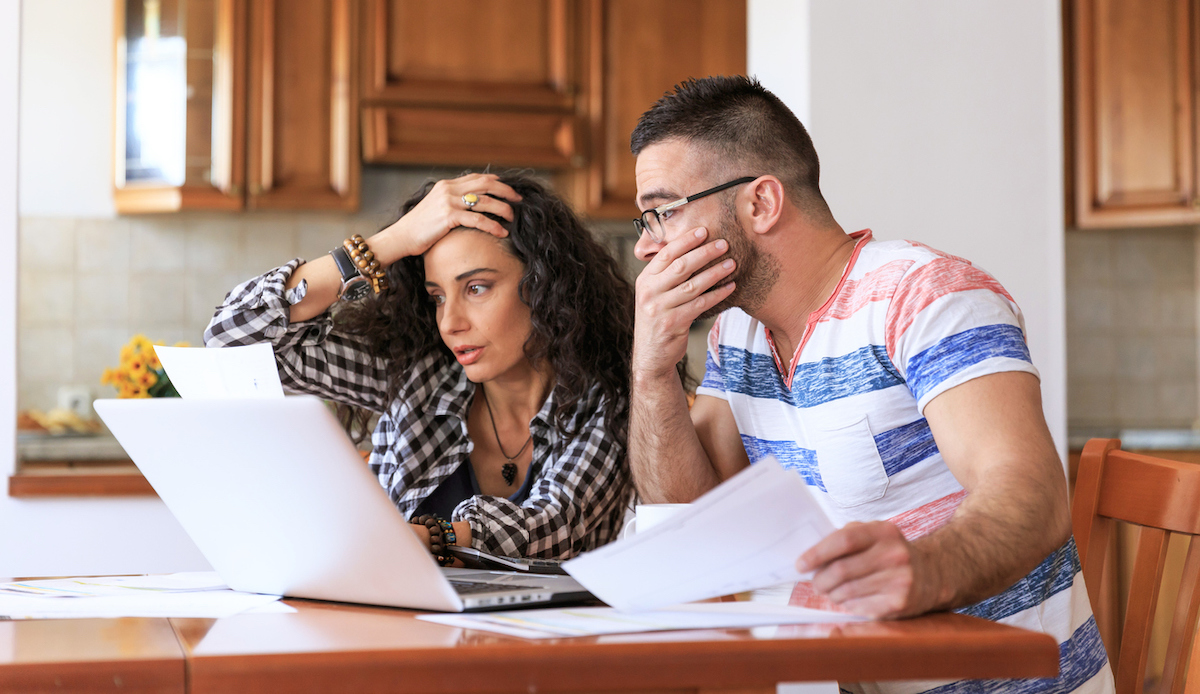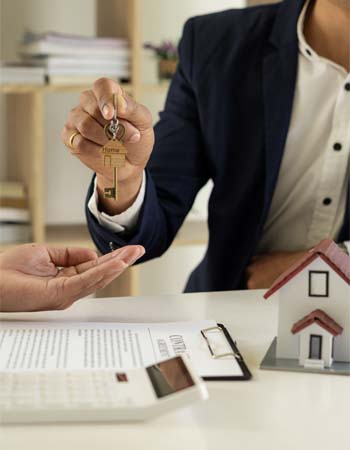

We may earn revenue from the products available on this page and participate in affiliate programs. Learn More ›
Q: I recently graduated from college and am on the market to buy a new home. A few of my family members keep cautioning me to avoid becoming house poor. I’m not familiar with the term. What does house poor mean?
A: If you have questions about what it means to be house poor, you’re not alone. There’s no official consensus on the definition of house poor, meaning it can be hard to identify and discuss. While the term is often used surrounding real estate purchases, it can actually refer to several aspects of owning a home that contribute to placing an individual in a situation where they are living beyond their means.
In the sections below, you’ll learn more about the meaning of “house poor,” along with some of the various factors that can contribute to an individual or household becoming house poor. Some strategies on how to avoid becoming or remaining house poor will also be shared.
“House poor” refers to a situation where a person spends most of their income on their home.

So, what does it mean to be house poor? The term house poor is used to describe an individual who spends such a large portion of their income on housing that they do not have enough funds to meet other needs or aspirations.
Being house poor doesn’t have to do with your yearly income—just the percentage of it that’s spent on your house. For example, a person earning a $250,000 salary could be just as “house poor” as someone who makes $50,000 a year.
According to a survey conducted by Consumer Affairs, 69 percent of homeowners feel that the definition of house poor applies to them. In the same survey, three out of every five homeowners indicated they have had to forego other home essentials to keep up with their mortgage and other housing bills.
There are several drawbacks to being house poor.
The cost of being house poor can be significant. When you spend a large percentage of your income on your mortgage and home-related expenses, you aren’t left with adequate funds to cover other stuff.
Some of the downsides of being house poor include:
- Worrying about the bills: When there is no room in your budget, you may feel yourself constantly worrying about paying your mortgage and other bills.
- Inability to save money: Individuals who are house poor are spending all of their money on house-related items, meaning little to nothing is left to build up their savings account or emergency fund.
- Moving money from savings: If an unexpected expense arises, you may need to pull money from your savings account to cover it.
- Postponing retirement: Setting money aside to ensure a comfortable retirement can be extremely challenging or impossible when all of your monthly income is already spoken for.
- Inability to pay for wants: When you’re spending all of your money on your mortgage and essentials, that leaves no room to pay for anything fun, such as dining out, traveling, or attending events.

Overlooking costs beyond the purchase price can lead to a house poor situation.
Sometimes, buying the best house you can afford on paper isn’t the best decision. Don’t forget that there are other factors and expenses to consider beyond the purchase price of a house and your projected monthly mortgage payment.
Some additional factors you should account for when determining how much house you can afford include:
- Utility bills: Utility bills can add up quickly. Many people who move from an apartment to a home are surprised at the difference in their monthly gas, water, and electric bills. Before buying a new home, do some research to determine your average monthly costs for utilities.
- Outdoor expenses: It’s important to factor in landscaping costs as well as having snow removed in the winter, if that’s a concern where you live.
- Transportation: Don’t forget to also consider the length of your commute to work and if you’ll need to spend more on gas or other transportation options.
- Maintenance and repairs: Routine maintenance tasks also shouldn’t be overlooked. Many experts recommend budgeting 1 to 4 percent of your home’s value for covering necessary maintenance each year. Also leave room in your budget for some surprise jobs—such as repairing or replacing a leaky roof or cleaning up water damage in the basement. It is possible for you and your real estate agent to miss some warning signs before making an offer on a home.
- Renovations: Beyond routine maintenance tasks, consider whether there are any major renovation projects you need or wish to complete. That laminate countertop may not have bothered you when you were heady with the excitement of purchasing the home, but as time goes on, it may move into the must-replace category.
- HOA fees: If you’re purchasing a home in a community with a homeowners’ association, look up the monthly dues that you’ll be responsible for to make sure they will fit comfortably within your budget.
- Taxes and insurance: Taxes and insurance should be worked into the calculation for your monthly mortgage payment. However, after you buy a home, it is possible for the assessed value to increase, which can lead to an increase in your property taxes.
- Interest rates: Interest rates can fluctuate—even between the time you start house hunting to the time you make an offer on a home. Work with your lender before making an offer to receive an updated monthly payment amount based on current rates. Additionally, keep in mind that if you choose an adjustable rate mortgage loan, your house payment amount will likely change.
A sudden change in financial circumstances is another common factor.
Financial circumstances change. It’s possible to be able to comfortably afford your home when you initially purchase it but end up house broke years, or even months, down the road. Some life events that could impact your ability to cover your mortgage include having children, losing a job, or losing a spouse, partner, or roommate who contributed to monthly bills.

Home buyers can avoid becoming house poor with careful budgeting and planning.
While understanding what house poor means is important, it’s also important to understand what you can do to avoid putting yourself in a similar situation. Creating a budget is one of the most important things you should do before you begin house hunting or put an offer on a home.
Your budget should include projected utility, food, transportation, and medical costs. Include your monthly income and savings and leisure money goals before determining how much you can reasonably afford to spend on a mortgage.
If you don’t have the room in your budget for your dream home, it may be the right time to look into a small townhouse or a condominium that can serve as a starter home. Once your financial situation changes, you may be able to upgrade to a larger home.
Refinancing, selling, or downsizing are possible solutions for house poor homeowners.
If you are house poor and looking for some breathing room in your budget, there are a few different options to consider. The first is to look into refinancing your home. If you have enough equity in your home, refinancing could help remove the private mortgage insurance (PMI), which could reduce each payment.
Another option to consider is to sell your home and downsize to something more affordable. While this may not be your ideal solution, having some breathing room in your budget could help lower your stress and make it easier to cover other expenses.
